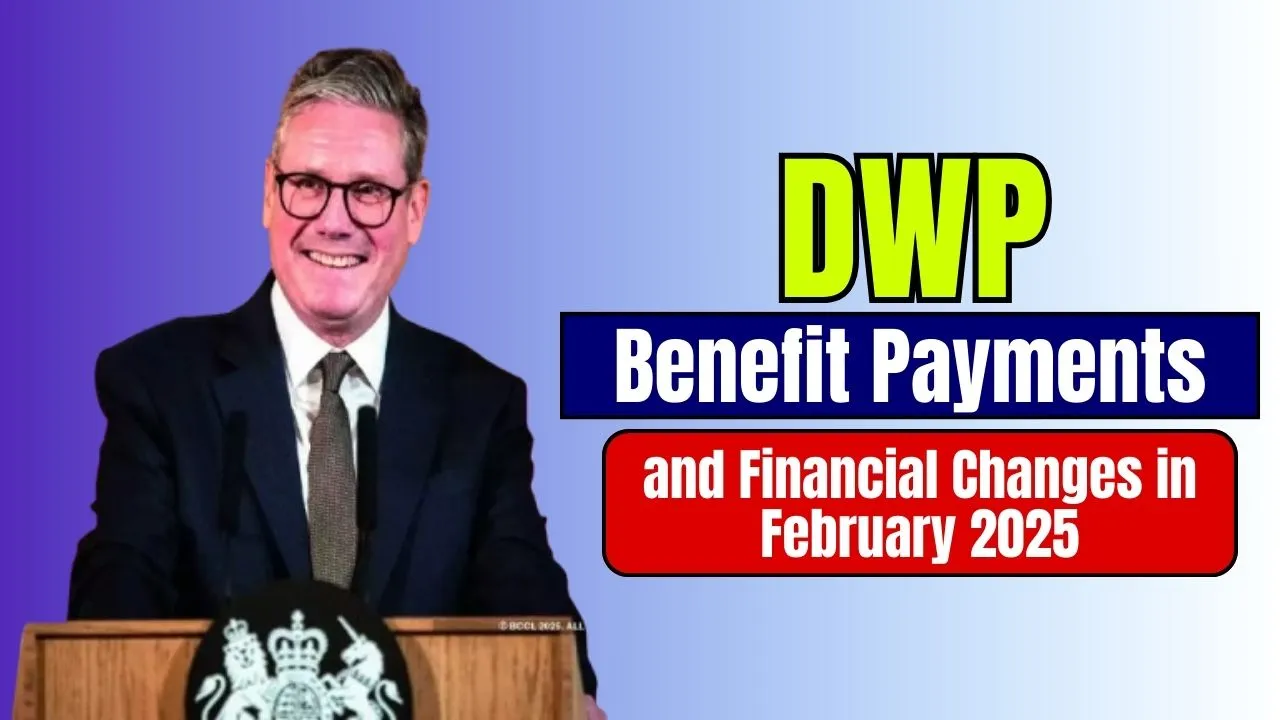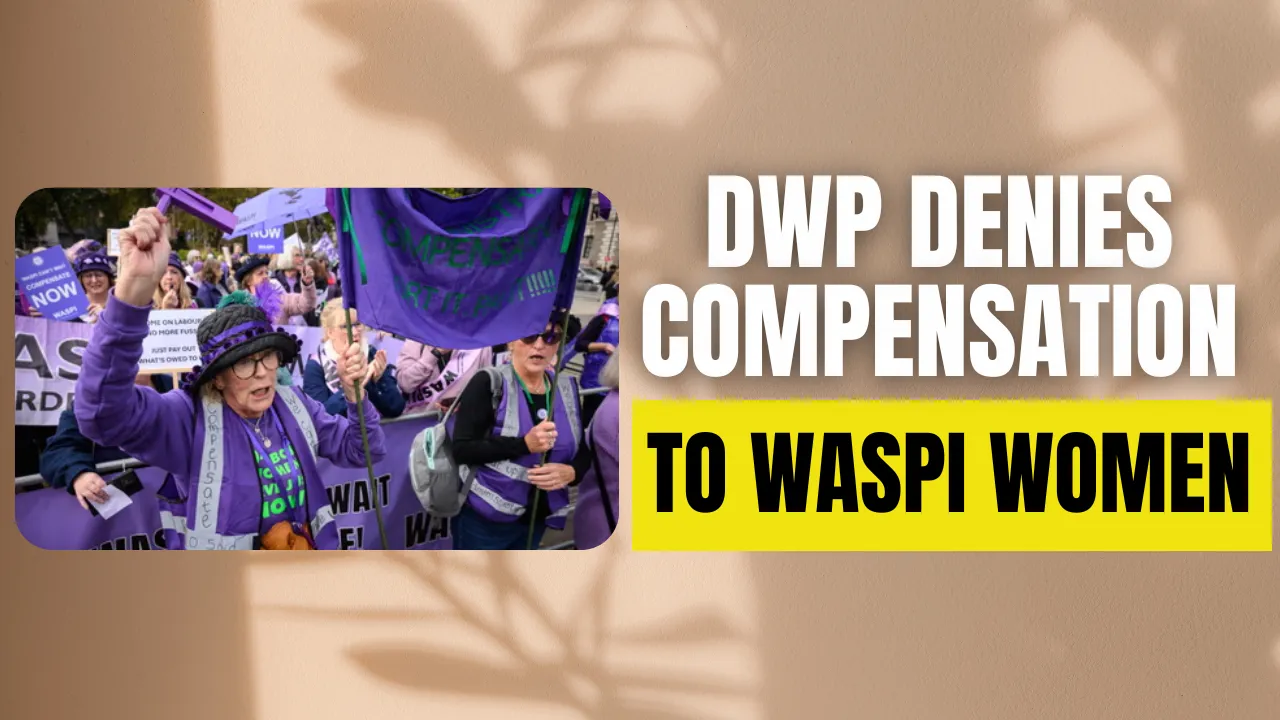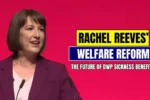DWP Benefit Payments and Financial Changes in February 2025: February 2025 brings a series of financial updates that will affect millions of people across the UK. From shifts in DWP Benefit Payments to changes in tax regulations, interest rates, and energy costs, individuals who rely on government support or financial assistance should be aware of what is coming.
One of the most significant updates involves the accelerated transition to Universal Credit, affecting thousands of benefit recipients. Additionally, adjustments in payment dates, tax penalties, and cost-of-living support programs could impact personal budgets. This article provides a detailed breakdown of these financial changes, helping individuals understand what to expect and how to prepare.
Key Financial Updates in February 2025
| Change | Details |
| Universal Credit Migration | Thousands of benefit claimants will receive notices to transition to Universal Credit. |
| Benefit Payment Date Adjustments | Payments scheduled for February 29, 30, or 31 will be issued on February 28. |
| Interest Rate Decision | The Bank of England may reduce interest rates, impacting borrowing costs. |
| Inflation Report | The latest inflation data will be released, influencing economic policies. |
| Energy Price Cap Review | Ofgem will announce a potential increase in the energy price cap. |
| Tax Return Penalties | Late tax filers will start facing fines for missed deadlines. |
| Household Support Fund | Local councils will continue distributing financial aid for essential living costs. |
| Winter Fuel Payment | Pensioners may receive delayed payments if they reported missing funds in January. |
| Warm Home Discount | Eligible households can apply for a £150 reduction on electricity bills. |
| Cold Weather Payments | Low-income households may receive additional support if temperatures drop significantly. |
Universal Credit Migration – Faster Transition Begins
The government is accelerating the Universal Credit rollout, with thousands of people receiving notifications to switch from older benefit programs. In February, around 63,000 Employment and Support Allowance (ESA) claimants will be informed that they must transition to Universal Credit before their current benefits expire.
By March 2026, approximately 800,000 people will have moved to Universal Credit, making it the primary welfare system for those in need. If you currently receive Working Tax Credit or Child Tax Credit, these benefits will also be phased out by April 2026, with some closures beginning as early as March 2025.
Claimants who receive a migration notice must apply within three months to prevent interruptions to their benefits. Failure to act within this period may result in payment delays or disruptions.
Changes in DWP Benefit Payment Dates
Because February has only 28 days, certain DWP Benefit Payments will be rescheduled. Individuals who usually receive their payments on the 29th, 30th, or 31st of the month will receive them earlier, on Friday, February 28.
Additionally, if your payment date falls on a weekend, it will be processed on the preceding Friday. Unlike some months, February does not contain bank holidays, meaning further disruptions are unlikely.
To confirm your payment schedule, it is advisable to check your benefit statement or contact DWP directly.
Interest Rate Decision – Possible Reductions Ahead
On February 6, 2025, the Bank of England will announce its latest decision on interest rates. Experts predict that rates could be lowered due to declining inflation, which may ease financial pressure on borrowers. The current base rate stands at 4.75%, but analysts suggest it could drop to 4.5%, with further reductions possible throughout 2025.
If rates decrease, this could mean:
- Lower mortgage payments for homeowners on variable rates
- Reduced borrowing costs for loans and credit cards
- Decreased returns on savings accounts
For individuals with high-interest debt, a potential rate reduction could provide some financial relief. However, those with savings should explore fixed-rate options to secure better returns before rates decline further.
Inflation Report – Cost of Living Insights
The Consumer Price Index (CPI) for January 2025 will be published on February 19. Inflation stood at 2.5% in December 2024, marking the first decline in three months.
This report will provide valuable insights into the state of the economy, answering key questions such as:
- Are prices stabilizing for essential goods and services?
- Will the Bank of England continue to lower interest rates?
- Will government policies shift to support lower-income households?
Understanding these trends is essential for making informed decisions about savings, budgeting, and future financial planning.
Energy Price Cap Review – Possible Increases Expected
On February 25, Ofgem will announce a revised energy price cap, which will take effect on April 1. Forecasts suggest that the current cap of £1,738 may rise to £1,785, increasing household energy costs.
A higher energy price cap means that consumers may see an increase in their monthly utility bills. To mitigate these costs, households can explore:
- The Warm Home Discount – A £150 rebate on electricity bills for eligible claimants
- Cold Weather Payments – A £25 payment per week of extreme cold for qualifying households
- The Household Support Fund – Financial aid from local authorities for struggling households
It may also be beneficial to compare energy providers and consider switching to a fixed-rate plan to lock in lower prices before any increase takes effect.
Tax Return Penalties – Avoid Costly Fines
Taxpayers who missed the January 31 self-assessment deadline will begin facing penalties in February.
The penalty structure includes:
- £100 fine for late submissions
- Additional fines applied after three months
- Interest charges on unpaid tax balances
For those who have yet to file, it is crucial to submit tax returns as soon as possible to avoid accumulating penalties. If paying in full is not possible, contacting HMRC to set up a payment plan is advisable.
Financial Assistance Programs Available in February
Household Support Fund
The Household Support Fund remains active in February, with £421 million allocated for distribution by local councils. This program provides financial aid to families struggling with food, heating, and essential household expenses.
Winter Fuel Payment
Pensioners who reported missing their Winter Fuel Payment before January 29 may receive their funds in February. Payment amounts vary between £200 and £300, depending on age and benefit eligibility.
Warm Home Discount
The Warm Home Discount program provides a £150 reduction on electricity bills for eligible households. Claimants must apply before February 28 to receive this benefit.
Cold Weather Payments
If temperatures remain at zero degrees Celsius or below for seven consecutive days, eligible low-income households will automatically receive £25 per week to assist with heating costs. Payments are typically processed within 14 days of the qualifying period.
Final Thoughts
February 2025 marks a period of significant financial adjustments, including DWP Benefit Payment changes, interest rate decisions, tax deadlines, and rising energy costs. Staying informed can help individuals manage their budgets, avoid penalties, and access available support programs.
To ensure financial stability, benefit recipients should check their payment schedules, explore cost-saving opportunities, and remain aware of upcoming policy changes. Those affected by tax deadlines should act quickly to prevent unnecessary fines.
For further assistance, contacting DWP, HMRC, or local authorities can provide guidance on available financial aid. Staying proactive is key to managing these changes effectively.
Frequently Asked Questions (FAQs)
1. What changes are happening to DWP Benefit Payments in February 2025?
2. Who needs to switch to Universal Credit in February 2025?
3. Will the Bank of England lower interest rates in February?
4. How will the energy price cap change in February 2025?
5. What financial assistance is available in February 2025?
Household Support Fund – Provides financial aid for essentials like food and heating.
Winter Fuel Payment – Helps pensioners with heating costs, offering £200 to £300 in payments.
Warm Home Discount – A £150 rebate on electricity bills for eligible claimants.
Cold Weather Payments – £25 per week for low-income households if temperatures drop to zero degrees Celsius or below for seven consecutive days.






